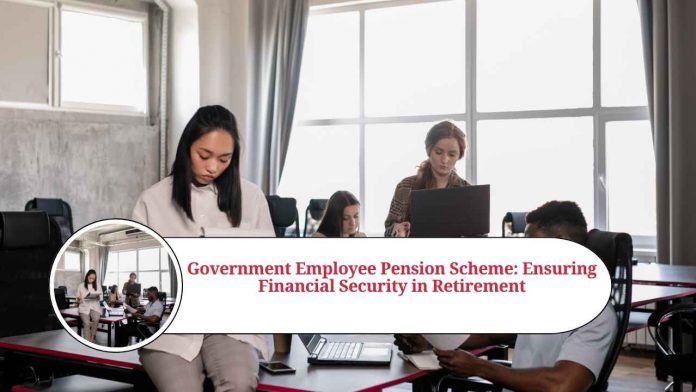The Government Employee Pension Scheme is a crucial initiative implemented by governments to provide financial security to their employees after retirement. This scheme aims to ensure that government employees, who have dedicated their careers to public service, receive a regular pension income, enabling them to lead a dignified and comfortable life post-retirement.
Eligibility and Enrollment
Government employees who meet the eligibility criteria, such as minimum years of service and age requirements, are eligible to enroll in the pension scheme. Upon enrollment, employees become eligible for pension benefits upon retirement.
Regular Pension Payments
Under the Government Employee Pension Scheme, retired government employees receive regular pension payments, which serve as a replacement for their monthly salary. These payments are calculated based on factors such as years of service, average salary, and specific government regulations.
Survivor Benefits
In the event of a government employee’s unfortunate demise, the pension scheme often provides survivor benefits to the spouse or dependent family members. These benefits offer financial support to the surviving family members, helping them cope with the loss and maintain their standard of living.
Pension Upgrades and Adjustments
To keep pace with inflation and changing economic conditions, the pension scheme may incorporate periodic upgrades and adjustments. These adjustments ensure that pension amounts remain relevant and provide retirees with a reasonable standard of living even as costs of living increase over time.
Read more useful content:
FAQs:
Q1: Who is eligible for the Government Employee Pension Scheme?
A1: Government employees, including civil servants, public sector employees, and other government personnel, are typically eligible for the scheme. Eligibility criteria may vary based on factors such as years of service, age, and government regulations.
Q2: How is the pension amount calculated?
A2: The pension amount is calculated based on various factors, including the employee’s years of service, average salary, and specific government regulations. The formula used for pension calculation may vary between different government organizations or departments.
Q3: When do pension payments begin?
A3: Pension payments typically begin after an employee’s retirement. The exact start date may vary depending on government regulations and the retirement policies applicable to the specific government entity or organization.
Q4: Are there any provisions for pension upgrades or adjustments?
A4: Yes, the pension scheme often incorporates provisions for periodic upgrades or adjustments to ensure that pension amounts keep up with inflation and changing economic conditions. These adjustments help maintain the purchasing power of the pension income over time.
Q5: What happens to the pension in the event of the employee’s demise?
A5: In the unfortunate event of the employee’s demise, the pension scheme often provides survivor benefits to the spouse or dependent family members. These benefits aim to provide financial support to the surviving family members, ensuring their well-being.
Q6: Are government employees required to contribute to the pension scheme?
A6: In some cases, government employees may be required to contribute a portion of their salary towards the pension scheme. The contribution amount and rules may vary depending on government regulations and the specific pension scheme.
Q7: Can government employees avail of other retirement benefits alongside the pension?
A7: Yes, government employees may be eligible for additional retirement benefits, such as gratuity, provident fund, and medical benefits, depending on government regulations and the specific employment terms and conditions.
Q8: Can government employees transfer their pension benefits if they switch departments or organizations?
A8: The portability of pension benefits may depend on government regulations and policies. In some cases, employees may be able to transfer their pension benefits when switching departments or organizations within the government sector. It is advisable to consult the relevant authorities or pension offices for accurate information and guidance on such transfers.




















